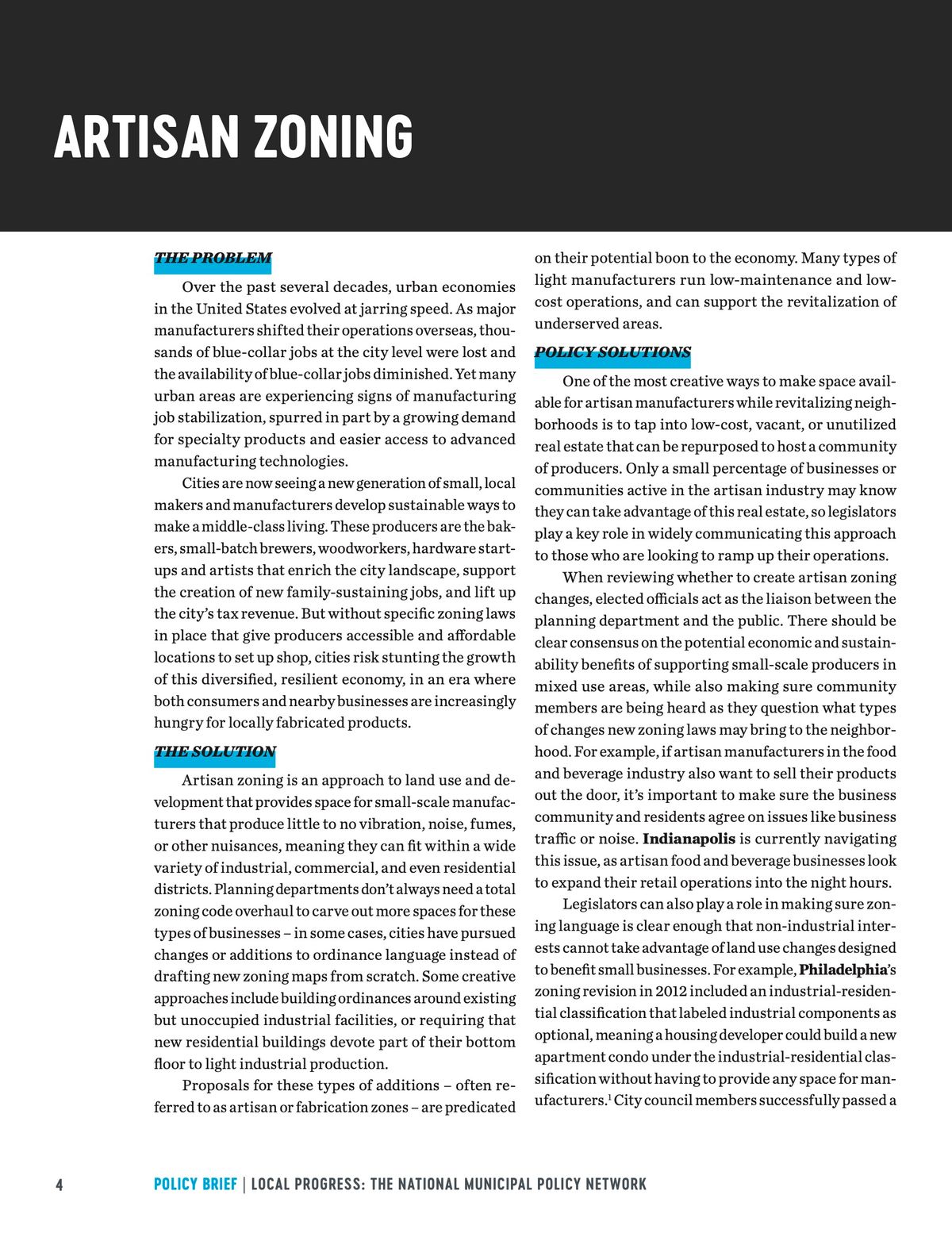
Artisan Zoning
After decades of losing blue-collar jobs, many urban areas are experiencing signs of manufacturing job stabilization, spurred in part by a growing demand for specialty products and easier access to advanced manufacturing technologies. Bakers, small-batch brewers, woodworkers, hardware startups and artists are enriching city landscapes, supporting the creation of new family-sustaining jobs, and lifting up tax revenue. But without specific zoning laws in place that give producers accessible and affordable locations to set up shop, cities risk stunting the growth of this diversified, resilient economy.
This policy brief highlights strategies cities are using to introduce Artisan zoning, an approach to land use and development that provides space for small-scale manufacturers that produce little to no vibration, noise, fumes, or other nuisances, meaning they can fit within a wide variety of industrial, commercial, and even residential districts. Case studies from Indianapolis, Nashville, and Bozeman illustrate how cities can leverage artisan zoning to repurpose underutilized properties, foster job creation, and revitalize neighborhoods. These cities’ innovative approaches, such as permitting small-scale manufacturing in mixed-use districts and incentivizing adaptive reuse of vacant properties, demonstrate how thoughtful zoning policies can support thriving local economies while preserving affordability and accessibility for producers.